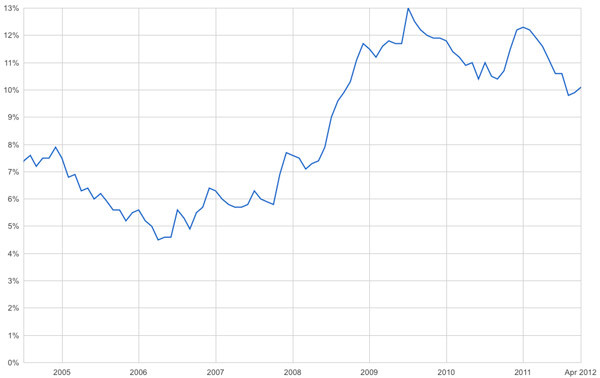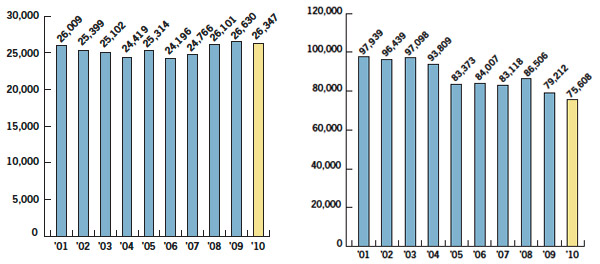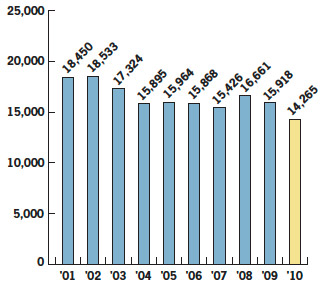
One thing that's puzzled people about crime during the economic downturn, if not necessarily criminologists, was that there wasn't a crime wave following the economic collapse. It would seem logical: more deprivation, more people out of work and with less to risk and to do, more crime. It wasn't the case in the '30s, however, and it hasn't been the case nationwide, as violent crime famously continues to decline.
But I've been looking at crime data for the past few days, and there does seem to have been a noticable bump in certain crimes in Chicago accompanying the most dramatic spike in unemployment. Not a large one, but one that did check ongoing declines and cause a murmur in murder rates.
To begin, here's the unemployment rate in Chicago from 2005-present. It starts to tick upwards in 2007, and then there's a massive increase from 2008 to mid-2009. The biggest increase comes from 5.8 percent in April 2008 to 11.7 percent in June 2009: in short, unemployment doubled in just over a year.

Meanwhile, burglarly (left, from the CPD annual report) hits its high point for the decade; theft, which had been in decline, levels off and then increases in 2008:

Ditto for robbery:

A similar trend can be seen in the percentage of murders caused by robberies. The city breaks out murders by causual factors: "altercations," child abuse, domestic, gang-related, robbery, index crimes other than robbery, other, and under investigation. Murders caused by robbery usually comes in fourth, behind gang-related, altercation, and under investigation.
* 2005: 25 robbery murders made up 5.6 percent of the 450 murders.
* 2006: 46 robbery murders made up 9.8 percent of the 471 murders.
* 2007: 38 robbery murders, 8.5 percent of 445.
* 2008: 57 robbery murders, 11.1 percent of 513.
* 2009: 34 robbery murders, 7.4 percent of 460.
* 2010 (may change with the next CPD annual report): 27, 6.2 percent of 437 murders.
Murders are, to quote one criminologist I read somewhere, a "low-volume" crime: even in the very salty world of crime stats, murder numbers and rates require particular reams of caveats. But a glance at the top-level data suggests that if the recession didn't cause a crime wave, it did bump certain unsurprising categories up a bit.
Photograph: -Tripp- (CC by 2.0)


